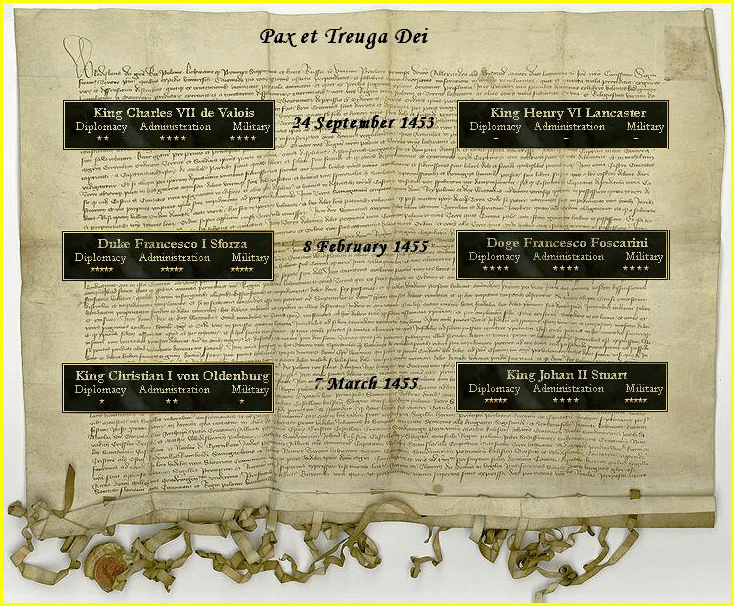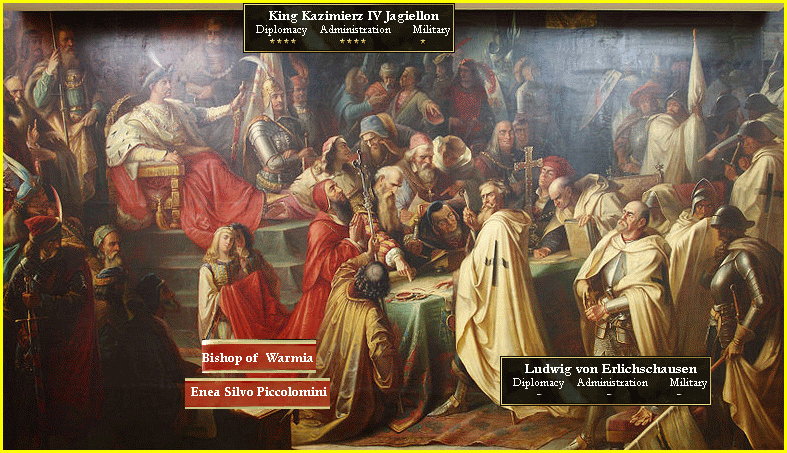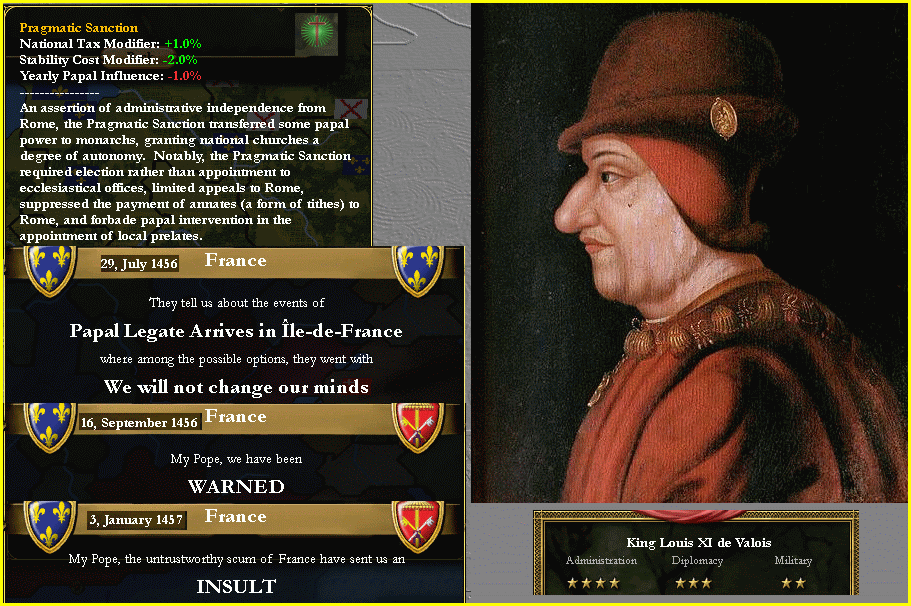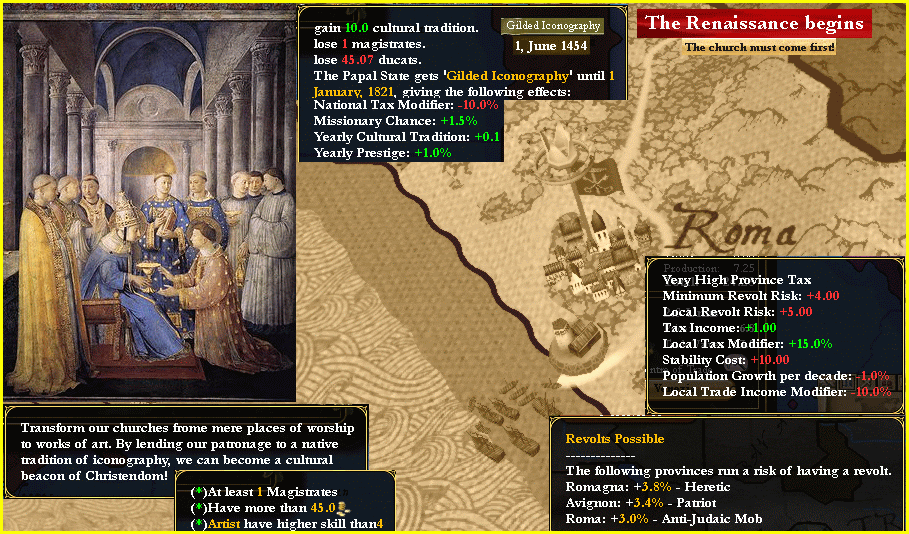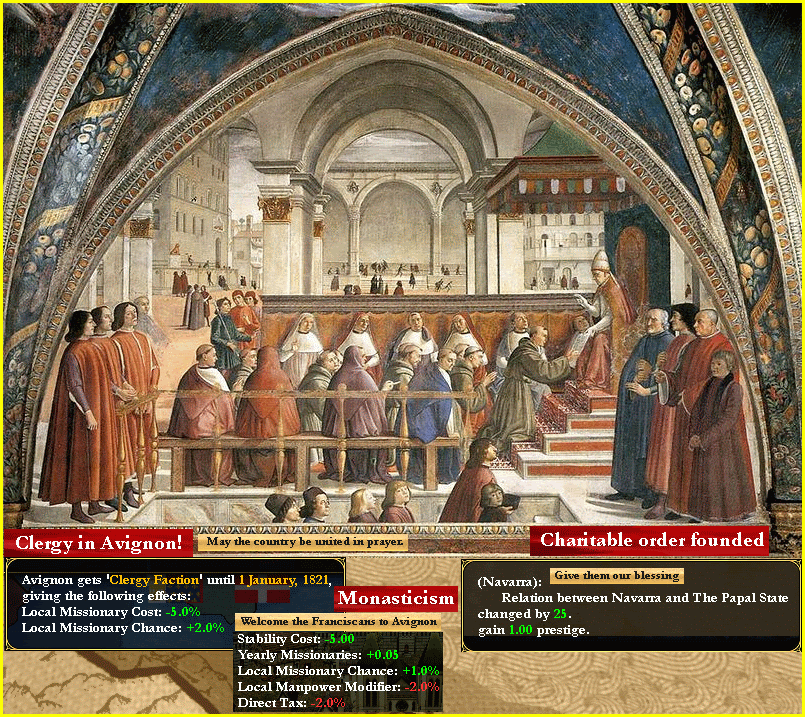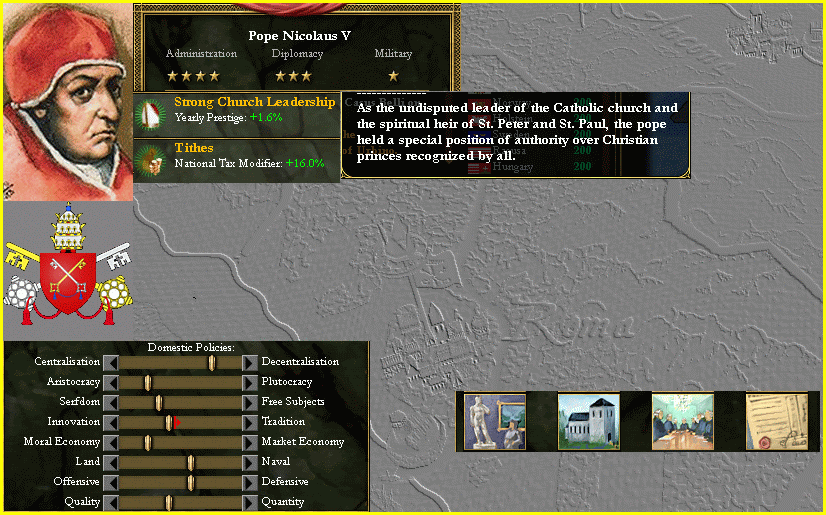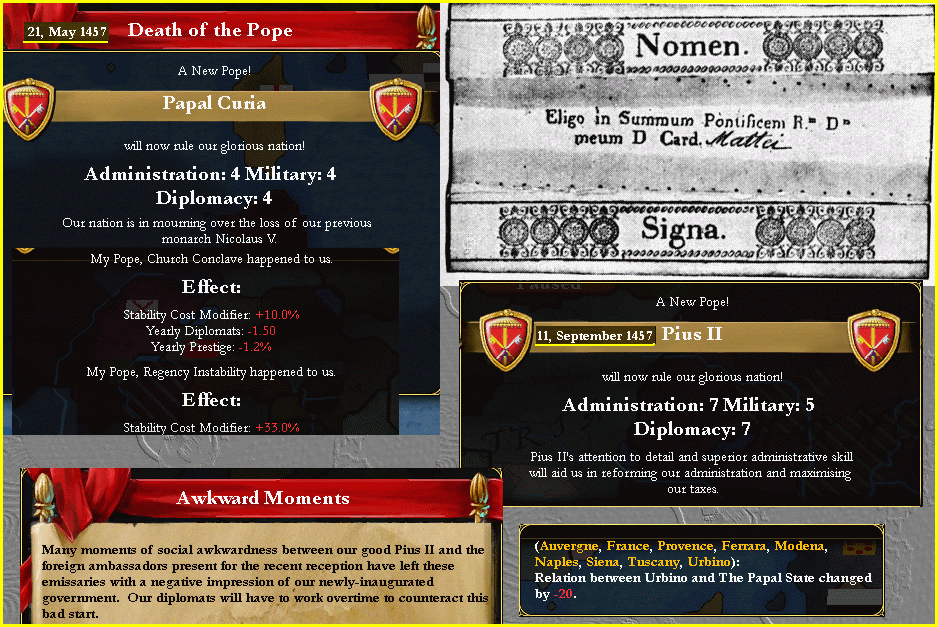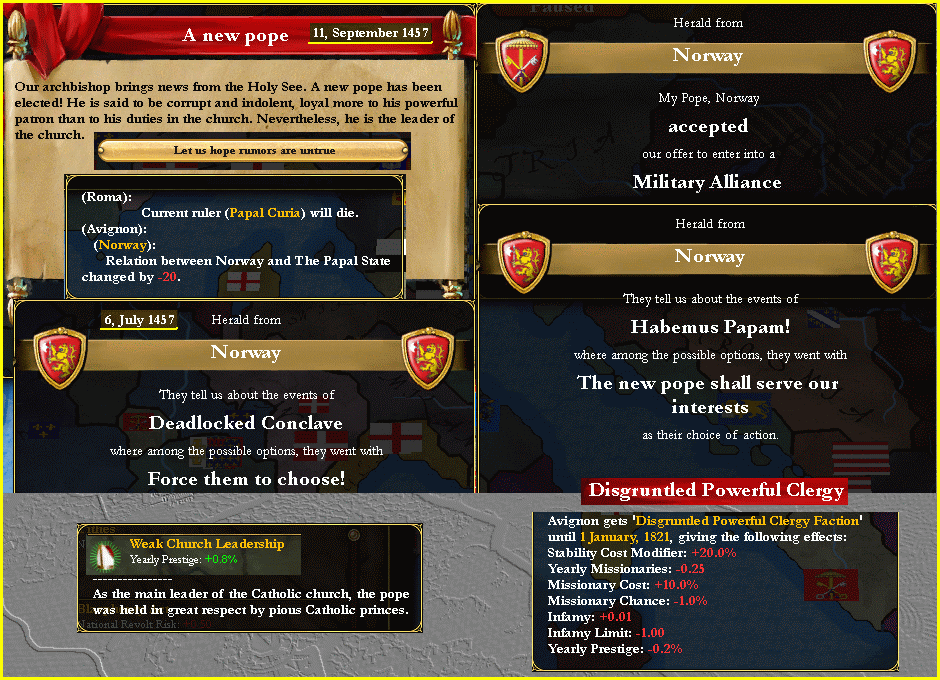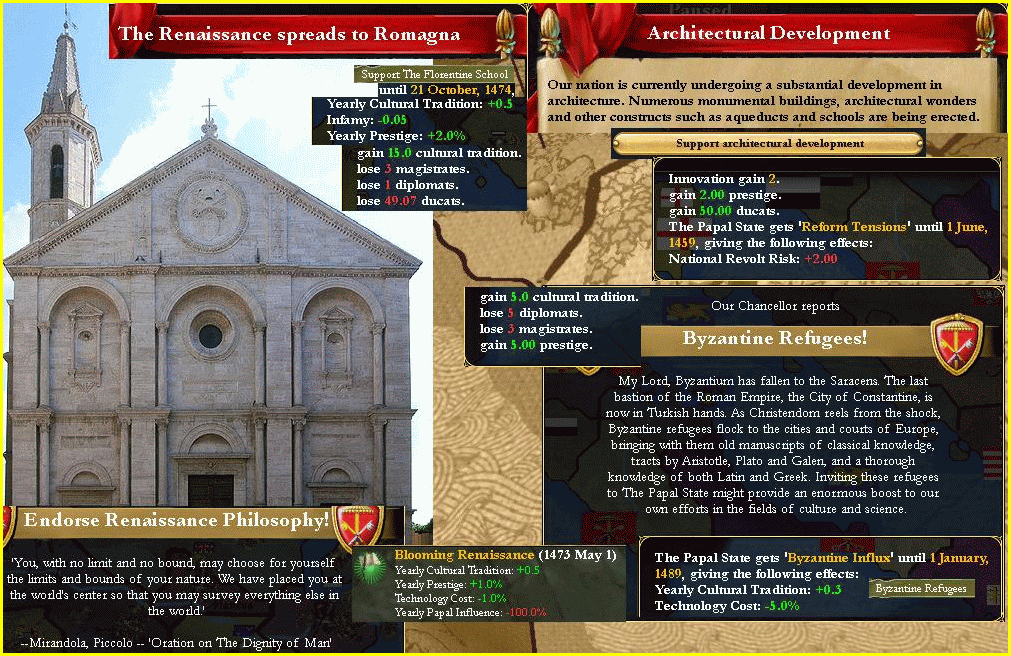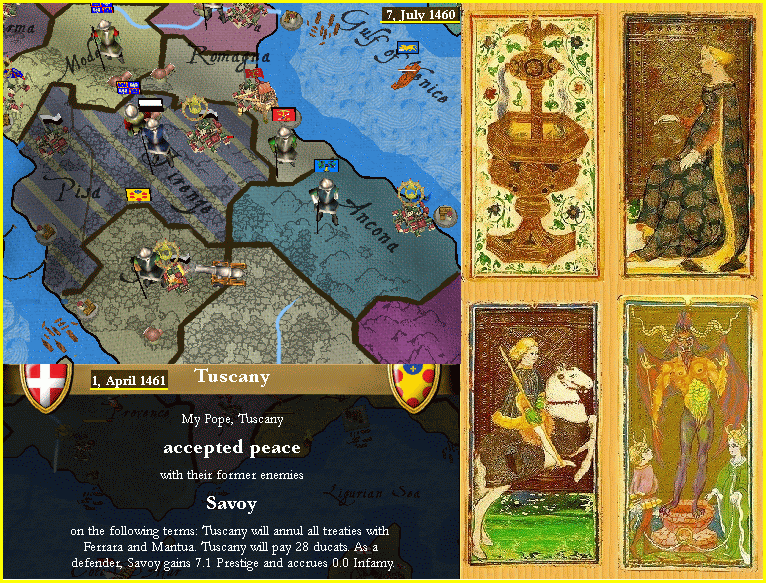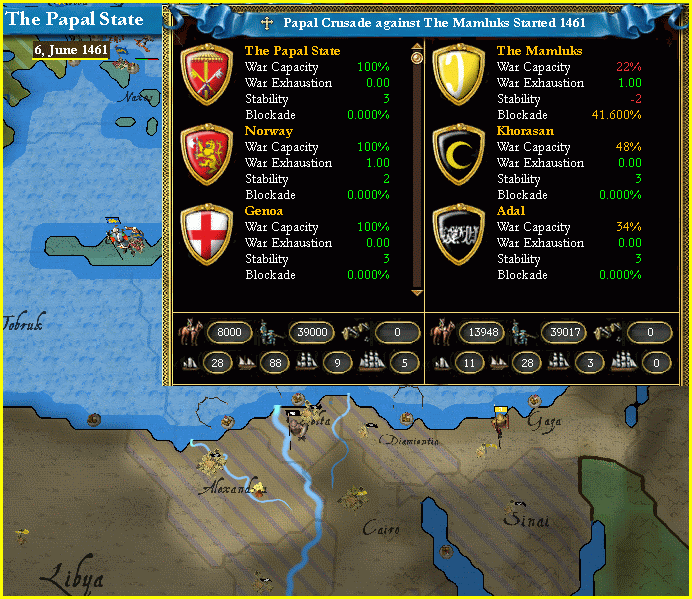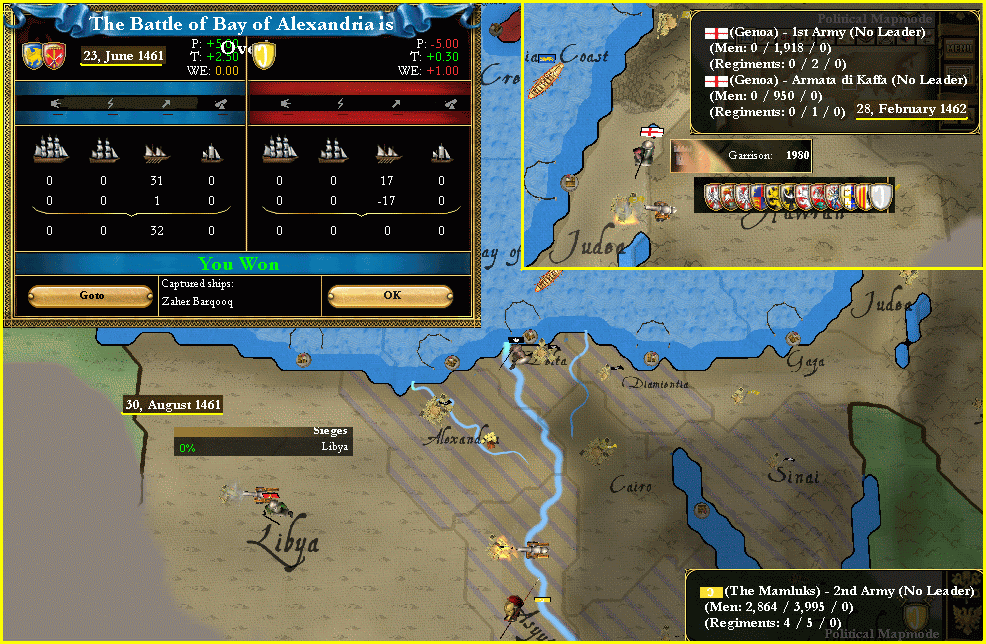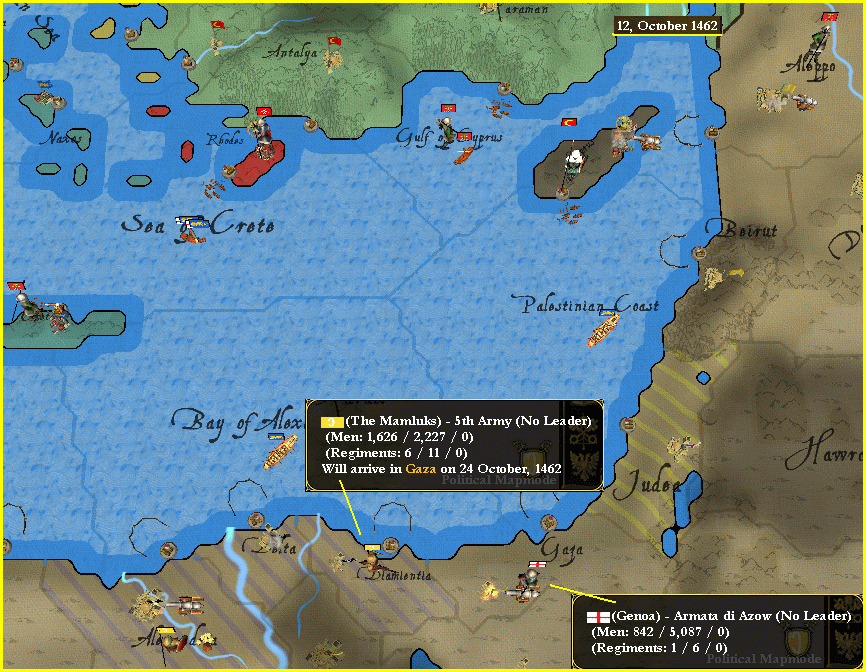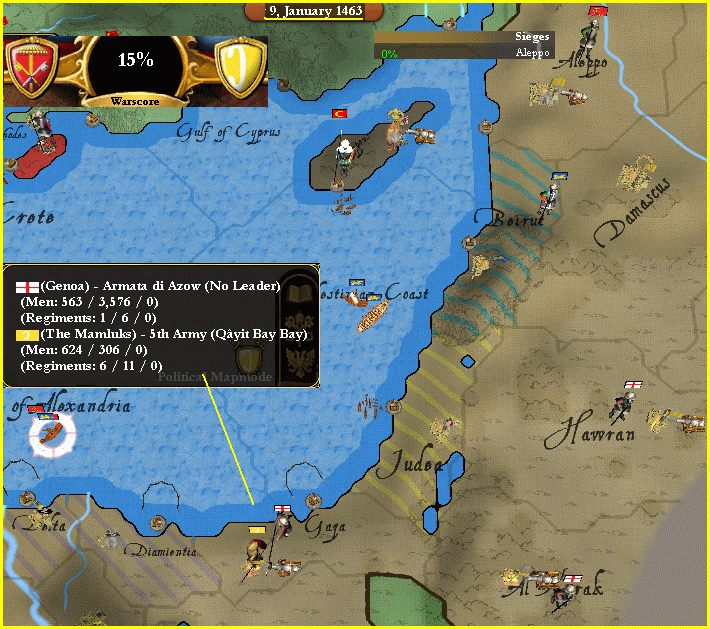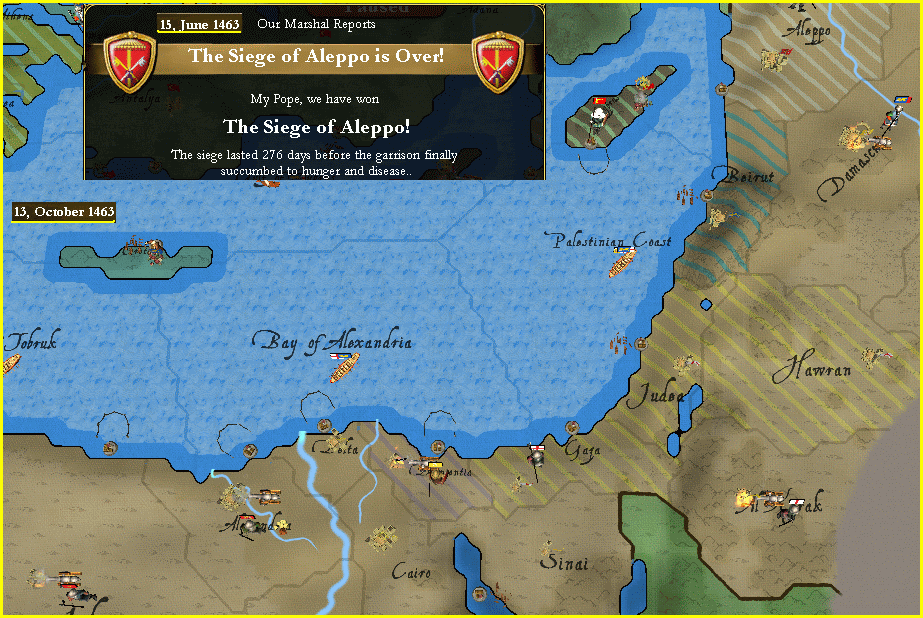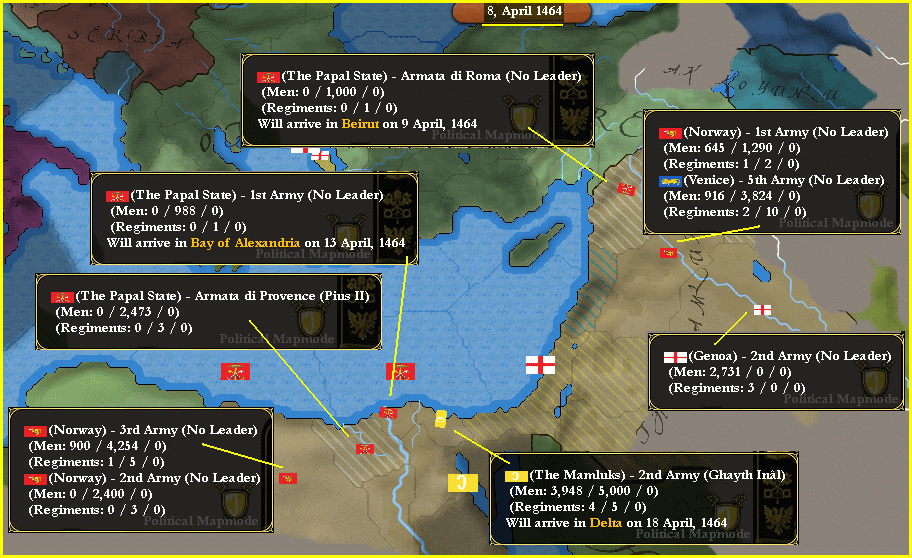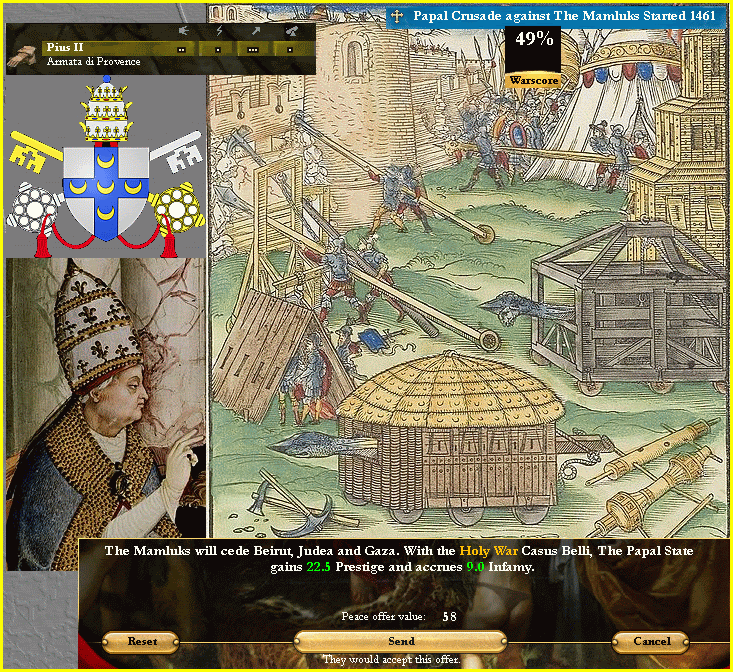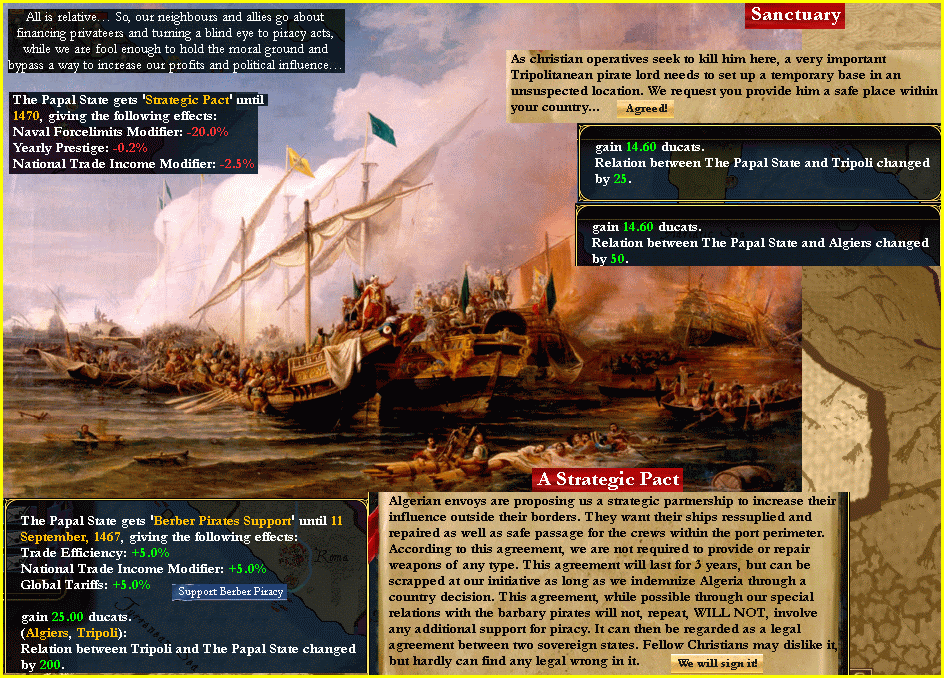Single Men - The Holy See MMU
Welcome again! Aaring has become my addiction, and apparently I can't go on without my regular dose.
The Papal States
Them being one of the most aared countries on these boards, I wanted to see what’s in the Papal States that makes them so special. Of course they’re doubly special in MM, since like KoSJ (or sorely-missed MMP Hansa), they have their own uniqueness. As they appear less suicidal than KoSJ, I decided it’s high time I tasted deadlock conclaves, Papal controllers’ pressure, curia mechanics and all the other stuff dharper’s Dei Gratia added to the game. I was inspired by the fast-paced, gripping Screaming Popes by merrick; the hilarious The Papal State:A Mission AAR for EUIII (In Nomine) by EUROO7; and I recommend the current Deo juvante, vinco - a Papal State AAR by adamclason, which I'm following. I decided my goals will be different though; and here I'm indebted to Opening the Papal AARchives 1453-1792 by Bingo Brett (played on MMIV), which I'm still trying to catch up with btw.
Goals
Surviving of course, but this shouldn’t be such a challenge as it was with Navarre or Danzig. What I’m not striving for is Italy formation or even land grab. Plausibility is the MM favourite phrase (well, cliché), so crusading to Holy Land, containing the Turk, promoting Catholicism, fighting heresy and keeping the Papal authority high is what I’ll try to achieve. A bit of role-playing is what you may expect, but I’m not going to go suicidal here, like dowing OE with a 3DIP Pope.
Format
Encyclopaedia entries. I’m going to draw heavily from on-line resources. Gameplay notes will be in yellow. As Popes are expected to have short-ish pontificates: one Pope = one post. Instead of the events told in the chronological order, there will be a list of issues relevant to the given pontificate.
Mods and adjustments
This will be played on MMU, I’ve grown to become a MM fan(atic); with highly recommended ‘tolerance mod’ by CJL78. It slows down the super-fast conversions, in which OE, Lith and Pol excelled. To complement the changes in this mod and to imo bring plausibility to Poland’s starting situation I replaced their CAD with HT. Also, I removed Burgundian core on Calais to sort of push Burgundy’s expansion in another direction.
Issues / Bugs(?)
At times a Pope dies the vanilla-way, instead of MM death of the Pope -> curia (regency) -> conclave -> new Pope process. The vanilla-way doesn’t readjust the papal controller. I still haven’t decided how to go about it. I must thank bioes00 for helping me understand this issue.
House Rules
It’s my fourth take at the Holy See. First try and I was attacked by France, having obligingly provided it with ‘violated SoI’ casus belli, I’m still learning the HttT features, you see. I’m not adamant about not reloading, especially when I get some still-new-to-me HttT mechanics wrong, or when I hit the ‘accept peace’ button accidentally. I can admit to one intervention on AI’s side too. At one point I broke Portugal’s alliance with Grenada and Algiers, and Castile’s with Morocco. (So much for plausibility!) Anyway, if I cheat, you’ll be notified.
Comments and criticism are welcome. I played through till early 1490s and am faced now with an important decision to make. So I think I'll focus on writing for a while and when I get to Gregorius XIII, I'll ask you for advice.


